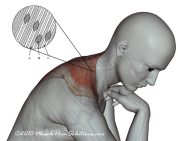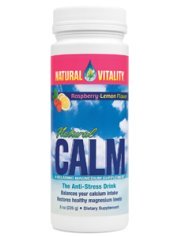Kids and Dehydration
Kids and dehydration do not mix well. And it's often up to you as the parent or caregiver to determine what is going on, especially with younger children. Although kids react to dehydration similarly to adults, they can't necessarily tell you, so below are some symptoms to watch for:
Kids and dehydration: Early symptoms

- flushed dry cheeks (This is what I watch for in my kids several times per day)
- thirst or sugar cravings
- constipation
- decreased urine volume and frequency
- dark or bright yellow urine (should be clear to light yellow)
- inappropriate sleepiness or lethargy
- "growing pains"
- elevated body temperature
- headache
- leg cramps
Kids and dehydration: Late symptoms
- Lack of tears with crying
- no urine output, or very little (painful) urination
- increased breathing rate
- spastic muscles
- dry or wrinkled skin
- nausea
- tingling in arms and legs
- dimmed vision
Infant Dehydration Symptoms

Babies are very susceptible to becoming dehydrated, especially during illness and hot weather. Here are some specific things to look for in assessing infant dehydration.
- flushed dry cheeks (keep an eye on this all the time)
- concentrated urine
- lack of wet diapers
- lethargy
- crankiness
- sunken soft spot
- eyes that have lost their glossiness
Treatment for Kids and Dehydration
Treating Severe Dehydration in Children
While you can treat mild and even moderate dehydration, severe dehydration in a child is a medical emergency. Kids usually get severely dehydrated from diarrhea or persistent vomiting. If the child can't keep down liquids, they should be brought to urgent care or the emergency room, as IV fluid replacement may be required. If the dehydration is mild to moderate, and they can keep liquids down, you can try giving them pedialyte or a sports drink which have electrolytes in them and glucose which helps the intestines absorb water better in these urgent situations. You can also make your own Oral Rehydration Solution from various household ingredients. Visit the rehydration project for recipes.
Treating Mild Dehydration in Children
If the child's dehydration is mild and due to not having enough water, treatment is simple... have them drink water and take some salt. How much water? Well, a good starting point is about half their body weight in ounces. But the easiest measure for me, is to have them drink before each meal, and keep an eye on their cheeks that they don't get hot and dry. It is important that kids learn to like, or at least tolerate water. If my kids don't want water, it is often because they need a little salt.
More salt in treatment of dehydration?!
 Salt is the most essential nutrient in the body after oxygen and water. (Potassium is the next most important.) This is because our bodies are very electrical. Sodium dissociates in water and has a +1 charge which the body uses to move water, and create currents in nerves, and electrical potentials across cell membranes. If a child doesn't eat enough salt, the body may take salt out of the bones (where it is stored to create the crystal structure) and soften them. Kids, as well as adults can get muscle cramps if they don't have enough sodium, potassium, calcium, and magnesium. I give my kids free access to salt. When I first allowed them to have salt in a napkin with a glass of water, "salt and water" as they call it, they took quite a bit since it was a novelty. Now they ask me for it when they notice they need it, ie., they are craving salt. Letting them have salt makes it so they will drink more water. Here are some more ideas about water for kids.
Salt is the most essential nutrient in the body after oxygen and water. (Potassium is the next most important.) This is because our bodies are very electrical. Sodium dissociates in water and has a +1 charge which the body uses to move water, and create currents in nerves, and electrical potentials across cell membranes. If a child doesn't eat enough salt, the body may take salt out of the bones (where it is stored to create the crystal structure) and soften them. Kids, as well as adults can get muscle cramps if they don't have enough sodium, potassium, calcium, and magnesium. I give my kids free access to salt. When I first allowed them to have salt in a napkin with a glass of water, "salt and water" as they call it, they took quite a bit since it was a novelty. Now they ask me for it when they notice they need it, ie., they are craving salt. Letting them have salt makes it so they will drink more water. Here are some more ideas about water for kids. For more general information in the treatment of dehydration, visit Treatment of Dehydration.
Real Life Stories: Kids and Dehydration
Breathing Problems
One of my daughters has had lung issues that are asthmatic in nature, but only when she gets sick. She has actually been in the hospital twice for these issues. Shortly after I read Your Body's Many Cries for Water by Dr. Batmanghelidj, she got sick and started having trouble breathing again. I was afraid we were going to the ER again, and started preparing. Then I remembered the connection that he had pointed out between breathing problems and dehydration. I immediately started giving her salt and water, and steaming the air. She started breathing a little easier. Soon the danger past. Now, whenever she has trouble breathing, dehydration is the first thing I address, and she has not had to go the ER since.
Muscle Pain
One day, my two year old (who is terrible about drinking water) kept complaining that she had "owies" in her legs. I looked and felt around, but couldn't find any cause for her pain. Then it occurred to me that she was probably dehydrated. Since she would only drink a couple sips of water, I gave her salt, and put lemon and stevia in her water to make it "lemonade". A few minutes later, she ran off to play. I asked her about her legs and she said they were "all better!" I have had similar experiences with the other children as well.
Stomach Pain
One time at the end of a long day, out and about, my son started complaining of stomach pain. Pretty soon, he was crying holding his abdomen. I didn't know what to do with him, he wouldn't calm down. Then I realized that he had been running around all day, and had not been drinking water. I made him take salt (which I now carry in my purse) and drink some water. After walking a little bit, he was back to his usual cheerful self. Now, whenever my kids have any strange body problems, I make sure they are hydrated before I worry about anything else.
Return from Kids and Dehydration to Dehydration Effects
Return from Kids and Dehydration to Muscle Pain Solutions Home Page




